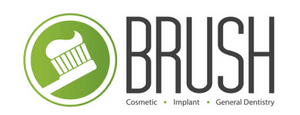Invisalign: The Clear Solution for Correcting Smile Flaws
One of the best ways to replace missing teeth is by getting dental implants. They are surgically placed into the jawbone, provide support for a crown, bridge, or denture, and look and function like natural teeth. While dental implants have many benefits, they also entail special care, especially in terms of eating.
After getting dental implants, it is imperative to follow your dentist’s instructions carefully to ensure a successful recovery. You’ll likely have some dietary restrictions for the first few weeks or months while your implants fuse with the jawbone through osseointegration.
Go for Soft Food
After the surgery, your mouth will be sore, and you may experience swelling and bleeding. Give your mouth time to heal, which means avoiding hard, crunchy, or sticky food that can irritate the surgical site and delay healing. Instead, stick to anything easy to chew, such as:
- Soups and broths
- Smoothies and shakes
- Cooked vegetables (e.g., mashed potatoes, carrots, sweet potatoes)
- Soft fruits (e.g., bananas, avocados, applesauce)
- Scrambled eggs or omelets
- Yogurt or cottage cheese
- Oatmeal or other hot cereals
These kinds of food are gentle on your mouth and won’t require excessive chewing or biting. They’re also nutritious and easy to digest, which can help you recover quickly.
Avoid Certain Food
While you’re healing from dental implant surgery, refrain from consuming certain food that may damage the implants or compromise the healing process. Some of the ones to avoid during this period include the following:
- Hard or crunchy food (e.g., nuts, chips, popcorn)
- Sticky or chewy food (e.g., gum, caramel, taffy)
- Tough meat (e.g., steak, pork chops, chicken wings)
- Spicy or acidic food (e.g., hot sauce, citrus fruits, tomatoes)
- Carbonated or alcoholic beverages
The ones mentioned above can cause problems such as dislodging the implants, causing bleeding or swelling, or introducing bacteria into the surgical site. Try to avoid them until your dentist allows you to resume your normal diet.
Gradually Reintroduce Solid Food
After several weeks or months, your dental implants should be healing and fusing with the jawbone. From here, you can begin to reintroduce solid food into your diet but do so gradually. Start with soft, easy-to-chew ones like cooked vegetables or soft fruits, and work your way up to tougher meats and crunchy vegetables.
Always listen to your body. Stop and return to softer food if you experience pain or discomfort while eating. Over time, you will be able to eat normally without any problems.
Maintain Good Oral Hygiene
Another thing you can do after getting dental implants is to maintain good oral hygiene. This means brushing and flossing regularly, using an antimicrobial mouthwash, and visiting your dentist for regular checkups and cleanings.
Good oral hygiene can help prevent infections, promote healing, and ensure the longevity of your dental implants. If you can, avoid or stop smoking or using tobacco products, which can delay healing and increase the risk of implant failure.
Dental Implant Care Overview
Getting dental implants can be life-changing, but you also need to understand to care for them properly to ensure a successful outcome. This includes following your dentist’s instructions for aftercare, keeping good oral hygiene, and avoiding habits that can harm your implants. With proper care, dental implants can last a long time and give you a beautiful, healthy smile. Don’t hesitate to contact your dentist for guidance if you have questions or concerns about dental implant aftercare.
Brush Dental is committed to providing exceptional dental care to maintain the beauty and health of your teeth. Our dentists in Seattle, WA, offer a wide range of services, such as dental implants, to give you the smile you deserve.
Call (206) 523-7180 or email us at info@brushseattle.com for more information.







